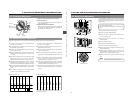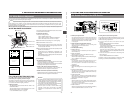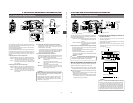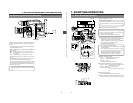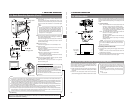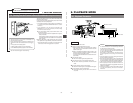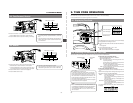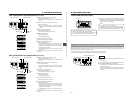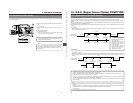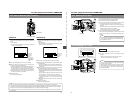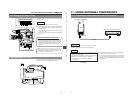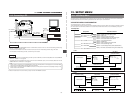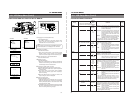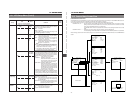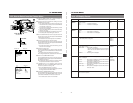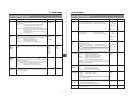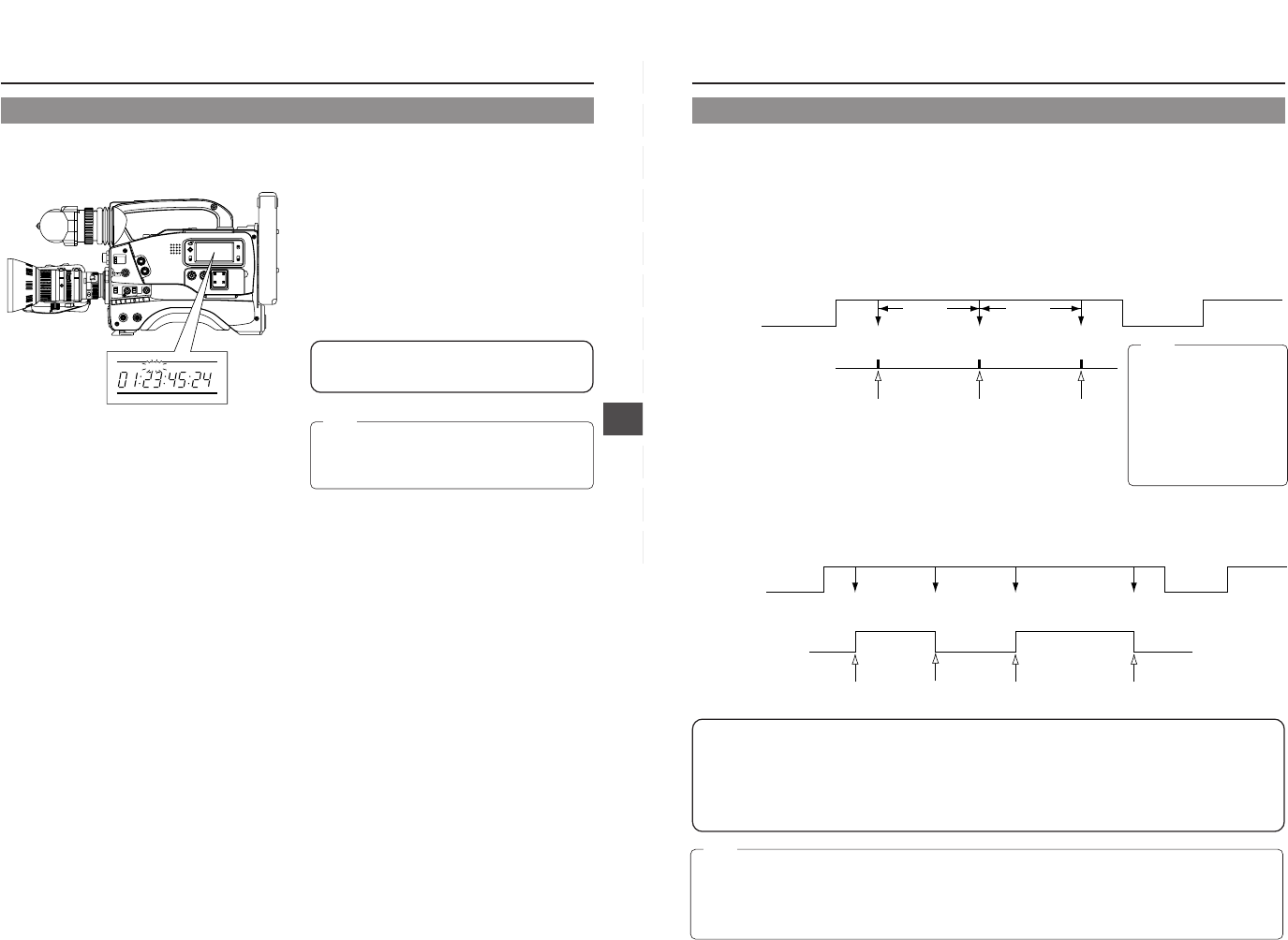
59
9. TIME CODE OPERATION
The GY-DV500 incorporates a time code reader. During playback, the time code or user's bit data recorded on the tape is displayed
on the counter display.
Ⅲ Set the VCR Setup Menu item No. 516 DISPLAY SELECT to
“TC”.
☞ See page 69.
Ⅲ Set the counter display to indicate time code or user's bit
data.
Ⅲ Reproducing time codes
Press the PLAY button.
• The “PB” indicator lights up on the display and the time
code or userís bit data are indicated.
LIGHT
ON
OFF
COUNTER
CTL
TC
UB
RESET
OPERATE/WARNING
MONITOR
SELECT
STATUSSHUTTER
MENU
FILTER
1 3200k
2 5600k
3 5600k+ND
POWER
NG
G
A
IN
O
U
T
P
U
T
W
H
T
.B
A
L
V
T
R
ON OFF
ALARM
MONITOR
S
A
V
E
S
T
B
Y
H
M
L
B
A
R
S
C
A
M
A
U
T
O
K
N
E
E
P
R
S
T
A
B
O
N
O
F
F
CH-1
CH-2
AUDIO
LEVEL
AUTO IRIS LOLUX
BACK L
NORMAL
SPOT L
STRETCH
NORMAL
COMPRESS
FULL AUTO BLACK
H M S F
PB
9-4 Reproducing Time Codes
• When passing sections where the time code does not
continue during playback, the time code stops running.
The playback mode continues.
Note:
When a tape containing more than two hours of recorded
time codes is played back on DV video equipment for
normal consumer use, the time code may not be played
back correctly.
60
10. S.S.F. (Super Scene Finder) FUNCTION
10-1 Explanation of the S.S.F. Function
During recording, the SSF function records the time code data at the point of time of a desired recorded scene in the unit's memory.
Using the S.S.F. data stored in memory during after-processing of the recorded image allows efficient use of the tape.
The S.S.F. function comprises the two modes CUE and MARK. Select the mode using the VCR Setup Menu item No. 398 S.S.F.
MODE.
When the VCR Setup Menu item No. 398 SSF MODE is set to CUE MODE or MARK MODE, the time code generator’s running
method is internally set to the REGEN mode.
When shooting in either of the modes, the time code data is stored in the unit's memory when the TAKE button on the front section
is pressed.
Ⅲ CUE Mode:
When the TAKE button is pressed at the desired scene during shooting of a given cut, the time code data at that point is stored
as CUE data in the unit's memory.
• In the MARK mode up to 119 scenes can be stored in memory. When the memory becomes full, the indication showing the
number of recorded scenes on the viewfinder screen becomes “M: - - -”.
However, if mixed with the CUE mode, the maximum number of scenes that can be stored decreases for each scene.
• In the CUE mode up to 237 points can be stored in memory.
However, for each REC start/stop the maximum number of points that can be stored decreases by two points for each scene.
The same is true when the CUE mode is mixed with the MARK mode.
• When the videocassette is replaced, new S.S.F. data is generated. S.S.F. data for six videocassettes can be stored in the
internal memory.
Ⅲ MARK MODE
During shooting of a given cut, press the TAKE button at beginning of a desired scene and then press the TAKE button again at
the ending of the scene.
The time code data at the point where the TAKE button is pressed first becomes the start point of the scene and time code data
at the point where the TAKE button is pressed the second time becomes the ending point, and both are stored in the unit's
memory.
Shooting started
with VTR trigger
REC start REC pause
Scene
CUE 1
time code data
CUE 2
time code data
CUE 3
time code data
TAKE button TAKE button TAKE button
more then 5s. more then 5s.
Shooting started
with VTR trigger
REC start REC pause
Cut
IN
time code data
OUT
time code data
OUT
time code data
IN time
code data
TAKE button TAKE button TAKE button TAKE button
Scene 1 Scene 2
Note:
• Leave an interval of at least
5 seconds between memoriza-
tion of CUE data.
If the TAKE button is pressed
within 5 seconds from the
previous point, the new point
is not memorized.
• In the CUE mode, the REC
start/pause time code data
have an error margin of
approximately 3 frames.
Note:
• Be sure to record S.S.F. data continuously on the same tape. It is not possible to rewind the tape for overwriting during the
recording.
If the tape is rewound in the middle of a recording, or after similar operation is performed, be sure to use the Scene End Cue
Up function in order to ensure that new data are recorded in continuation of the existing data.
☞ See page 63.
• In the S.S.F. mode, the VTR save mode is not activated.



